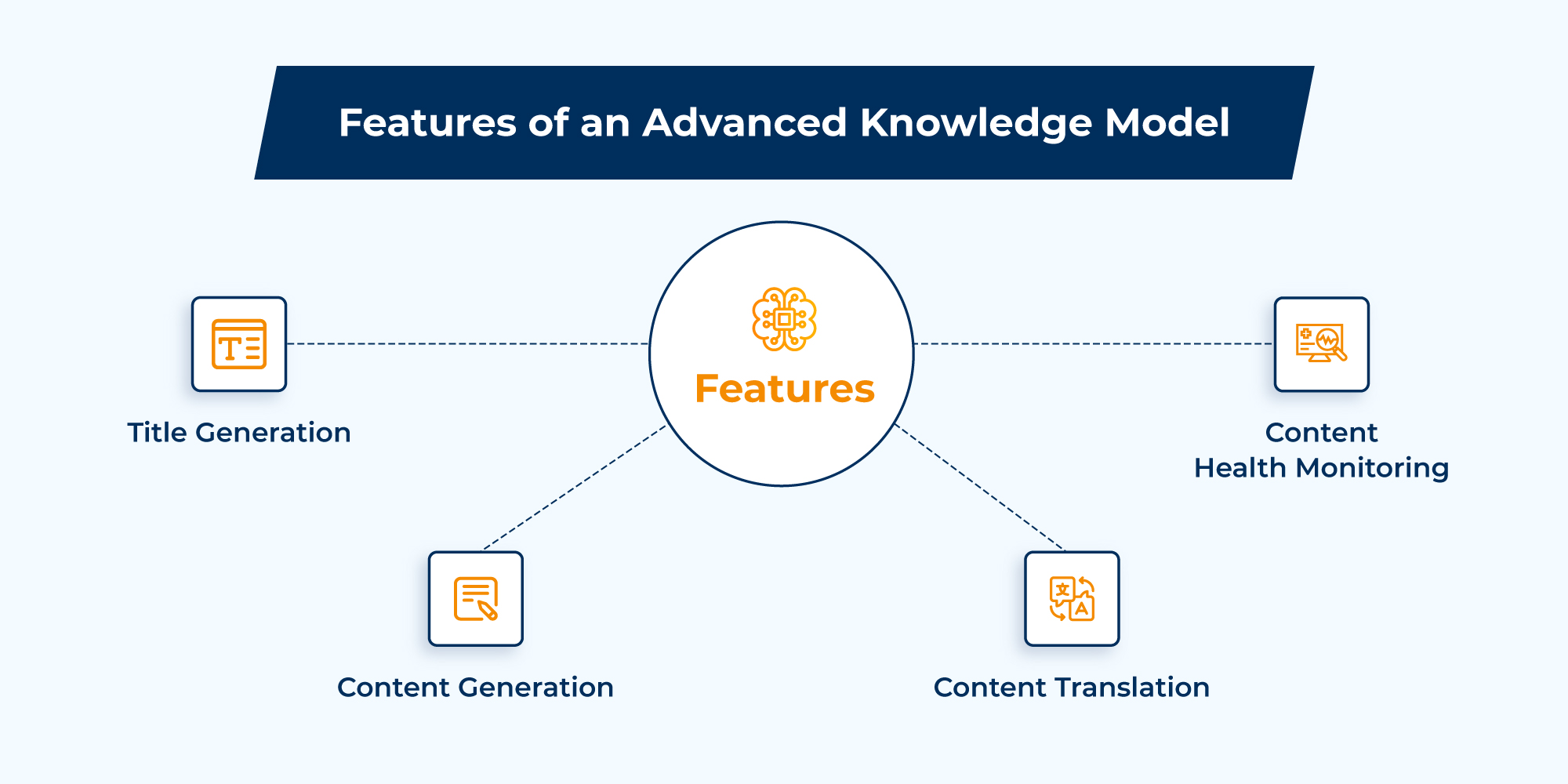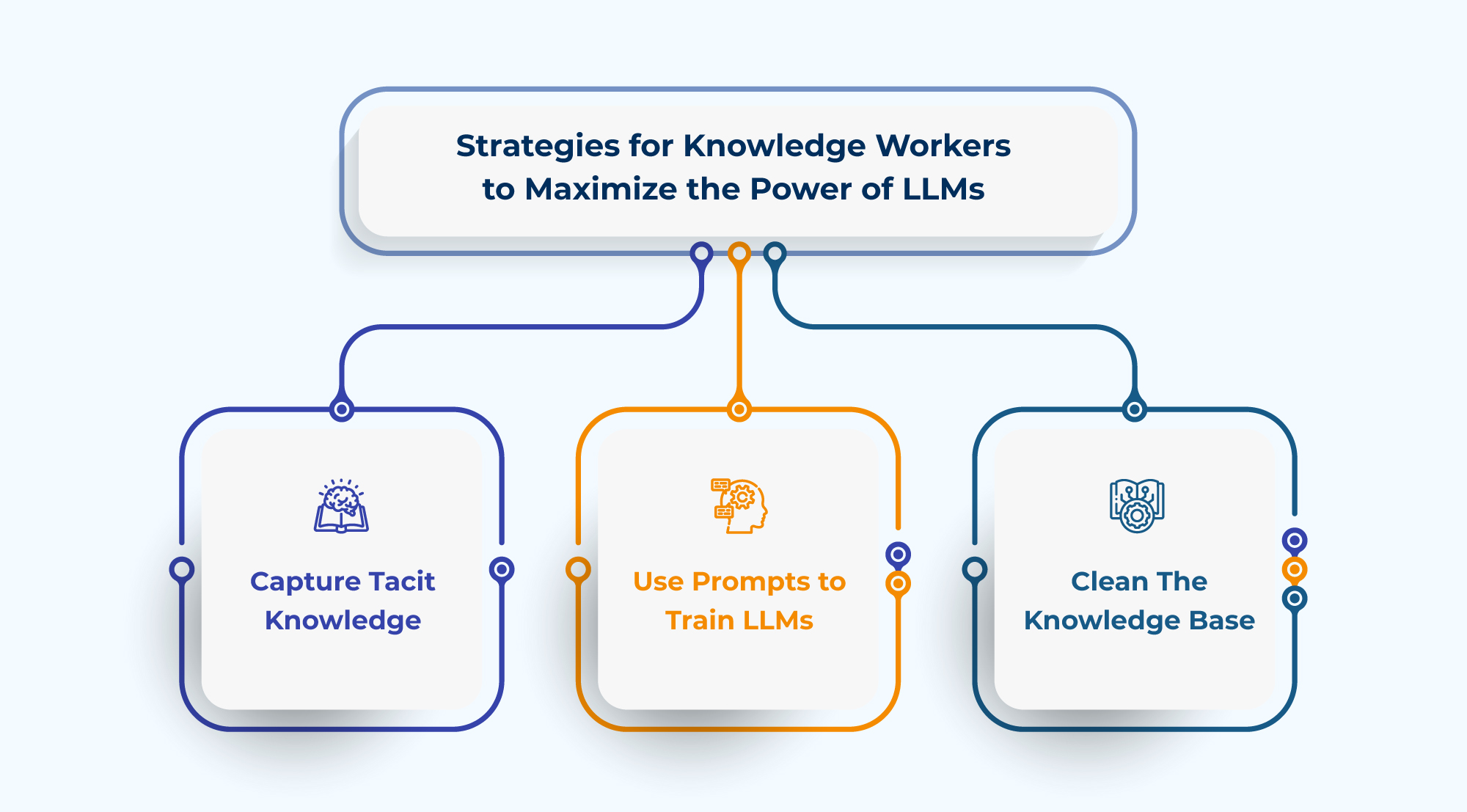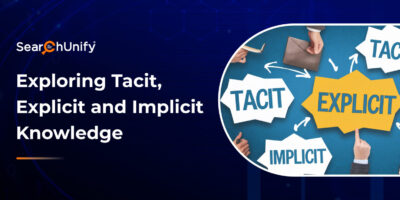
91% of customers say they would use a knowledge base if it met their needs.
In the era of digital transformation, customers expect more control over their experiences. Self-service has emerged as a prominent solution to meet these expectations.
Businesses must prioritize to keep their knowledge base (KB) consistent and coherent so that self-service can be improved. In fact, well-managed knowledge helps streamline communication, reduce response time, improve customer satisfaction, and build effective knowledge management.
In recent times, the Knowledge Management industry is actively capitalizing on cutting-edge advancements, particularly Large Language Models (LLMs), to significantly enhance the speed and quality of KBs.
Along with explaining how LLMs accelerate knowledge management success, this blog post delves into the evolving role of knowledge workers in the present era. Read on to know!
LLMs at the Forefront: Driving Next-level Knowledge Management
Given the rapid technology shift after the introduction of LLM-powered ChatGPT, knowledge workers are still comprehending how it will impact their role. Although some fear that LLMs could reduce job opportunities for them, the reality is that these technologies are more likely to transform the nature of their work rather than eliminate it altogether.
But first, let’s understand the difference between traditional and LLM-powered knowledge creation approaches.
| Basis of Differentiation | Traditional Knowledge Creation | LLM-Powered Knowledge Creation |
| Content Creation | Created by Knowledge Workers Manually | Large Language Models like ChatGPT, Bard, etc., are supervised by knowledge workers |
| Content Discovery Engine | Search Engine Optimization (SEO), i.e., writing content based on a single keyword | Semantic SEO (It refers to creating content for a specific topic rather than a keyword, delivering more relevant and contextual search results) |
| Content Creation Mechanisms | Keywords (Content is optimized for specific keywords) | Prompts (High-quality prompts are created to guide LLMs to generate accurate, human-like text) |
| Outcomes | Time-consuming, Human Errors, Limited Expertise | Quick, More Accurate, and Top-notch Quality |
Evidently, knowledge workers need to change their way of creating, optimizing, and refining KB articles with the help of LLMs. But in what all ways do LLMs help them? Let’s find out in detail.

1. Title Generation
One of the most strenuous aspects of creating a knowledge article is coming up with relevant titles for each article. LLMs can help automate this process by generating titles based on the content of the article.
2. Content Generation
Creating new content for a knowledge base can be a daunting task, especially for organizations that are just starting out. LLMs can help organizations generate new content based on existing articles or FAQs. It not only saves time but also ensures that the new content is consistent and aligns with the existing one.
3. Content Translation
Organizations that operate globally often need to provide support in multiple languages. LLMs work wonders by translating articles into different languages, ensuring that the knowledge base is accessible to a wider audience.
4. Content Health Monitoring
Maintaining a robust KB requires regular updates and revisions. LLMs make it feasible by identifying articles that need to be updated or revised.
Also, the in-built reporting module in LLM-based knowledge management products helps support leaders to evaluate the KB articles based on various parameters, such as uniqueness, title relevancy, link validity, metadata, etc. It is a great way to measure success and make necessary adjustments for further improvements.
Strategies for Knowledge Workers to Maximize the Power of LLMs
Having established the compelling efficacy of LLMs as a potent tool for efficient knowledge management, let us now delve into the optimal ways in which knowledge workers can harness the potential of LLMs.

1. Capture Tacit Knowledge
Tacit knowledge refers to the knowledge individuals gain through personal experiences, practice, and observation that is difficult to express or codify.
Support agents or knowledge workers often possess a ton of tacit knowledge. But what is the use if it is not visible or accessible to anyone? This is why building a knowledge-sharing culture is a must. Agents can make it happen by harnessing LLMs’ natural language processing capabilities to extract, structure, and categorize tacit knowledge, enabling efficient dissemination and discovery of valuable insights across teams.
2. Use Prompts to Train LLMs
Knowledge workers can input prompts into LLMs and let the model generate responses. They can then review the responses and provide feedback to augment the accuracy and relevance of the results. This collaborative process enhances the overall effectiveness of utilizing LLMs in knowledge management.
3. Clean The Knowledge Base
Effective knowledge management is not just confined to content creation but also refinement, updating, and review. Knowledge workers can play a crucial role in this by meticulously examining consistency in LLM-generated content in terms of terminology and style. They should ensure that KB articles are accurate, relevant, and helpful to customers.
Now that we have a very clear understanding of how LLMs transform knowledge management and assist knowledge workers. Let’s now understand the opportunities that lie within knowledge management using LLMs.
Unlocking The Opportunities In Knowledge Management With LLMs
1. Advanced Knowledge Discovery
Effective knowledge management extends beyond mere content creation; it thrives on proactive measures. This involves analyzing datasets to identify anomalies that indicate opportunities, pinpointing content gaps, recognizing recurring patterns or market trends, and identifying emerging issues before they gain widespread attention. These insights facilitate informed decision-making and deepen understanding of complex issues
2. Personalized Knowledge Delivery
In today’s world, personalization is key. Gone are the days of generic information retrieval. Nowadays, customers demand personalized experiences, and LLMs are here to deliver. LLMs can tailor information delivery by analyzing user preferences, past interactions, and history. This saves users time and helps them find relevant and personalized information faster and with less effort.
3. Innovative Solutions
Apart from all the benefits offered by LLMs they also support innovation. With their ability to understand users’ query context, provide data-driven insights, and perform predictive analysis, LLMs propose creative solutions to complex problems. This empowers organizations to not just handle complex queries efficiently but also unlock a new era of possibilities.
Ready to Reshape Your Knowledge Management with LLMs?
LLMs hold the power to create an effective knowledge base that enables support agents to quickly and accurately resolve customer issues.
SearchUnify’s Knowbler is the world’s first ML and GenAI-fueled knowledge management solution that empowers agents to create, review, and share knowledge, within their workflows. If you are interested in learning more about it and witnessing its capabilities, request a free demo today.











